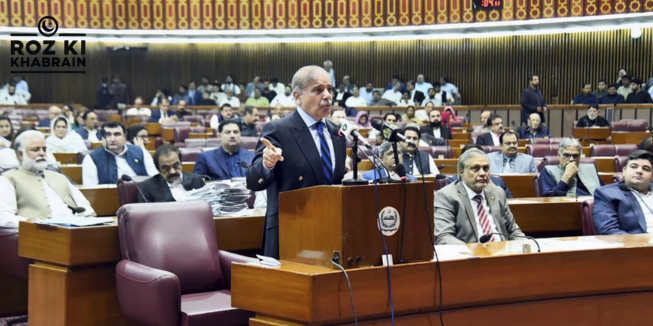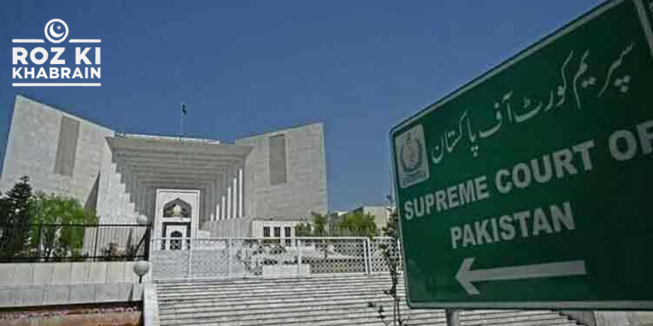After a month of intense political negotiations, the 26th Constitutional Amendment Bill, also known as the Constitutional Package, was passed into law early Monday morning, receiving approval from both houses of parliament with a two-thirds majority.
The bill, initially approved by the Senate with a two-thirds majority, was presented in the National Assembly during a late-night session that began at 11:36 PM and extended past midnight, with final approval at 5 AM.
Now officially the Constitution (Twenty-Sixth Amendment) Act, 2024, the law will be sent to the president for ratification under Article 75 of Pakistan’s Constitution.
The government needed 224 votes to pass the bill, and voting, overseen by National Assembly Speaker Ayaz Sadiq, resulted in 225 members supporting the motion, while 12 members from PTI and the Sunni-Ittehad Council (SIC) opposed it.
The bill, consisting of 27 clauses, saw PTI members walk out after the passage of the first clause. The government secured 211 votes, with support from eight JUI-F members and six independent and PTI-backed candidates.
Several PTI-backed independents, such as Usman Ali, Aurangzeb Khichi, Mubarak Zeb, and Zahoor Qureshi, voted in favor of the bill, along with PML-Q’s Chaudhry Ilyas. With no opposition present, the remaining clauses of the bill were passed swiftly.
Law Minister Azam Nazeer Tarar introduced the bill, and after the 27 clauses and preamble were passed, Speaker Sadiq ordered that assembly rules be followed. Bells were rung for five minutes to summon absent members, after which the voting was completed, and the bill was passed with 225 votes in favor.
Prime Minister Shehbaz Sharif hailed the passage as a “historic achievement,” calling the amendment a symbol of national unity. Following the session, PM Shehbaz signed the advice for President Asif Ali Zardari to ratify the amendment.
During the session, PPP Chairman Bilawal Bhutto-Zardari acknowledged the crucial role of JUI-F Chief Maulana Fazlur Rehman in securing the bill’s passage and extended his thanks to other parties, including the PTI.
However, PTI Leader Omar Ayub Khan criticized the amendments, arguing that they were passed under pressure and did not represent the people’s will. He also expressed concerns over the treatment of PTI members and claimed the government was attempting to undermine judicial independence.
Defense Minister Khawaja Asif defended the amendments, stating that they were part of a continuation of the Charter of Democracy, signed in 2006, and aimed to restore the dignity of parliament.
In the Senate, the bill passed with a two-thirds majority, with 65 members voting in favor and four opposing. Various clauses of the bill addressed significant constitutional issues, including the tenure of the chief justice, judicial appointments, and provisions for marginalized communities.
The 26th Amendment also fixed the chief justice’s term at three years, though Chief Justice Qazi Faez Isa had expressed no interest in seeking an extension.




